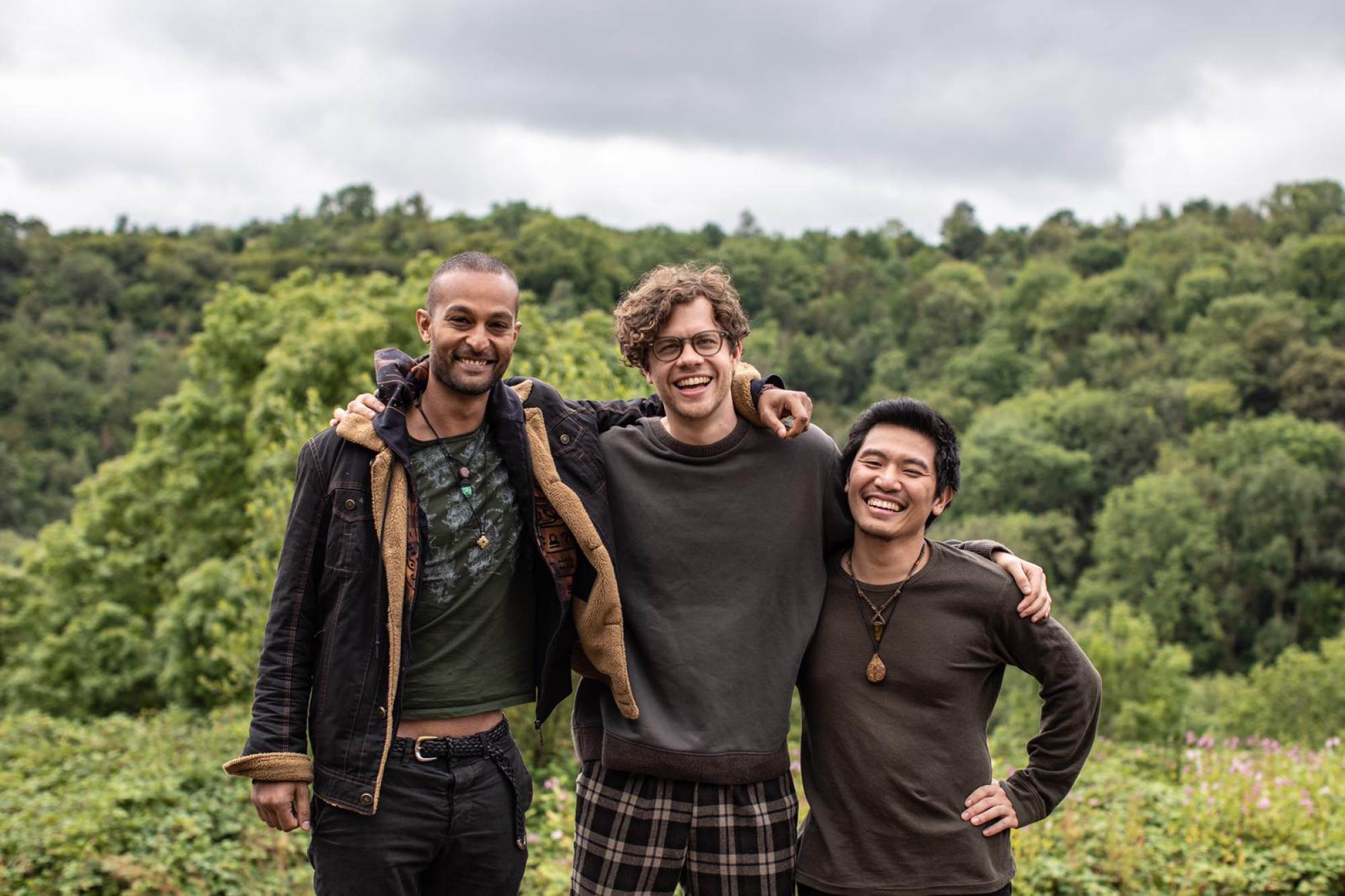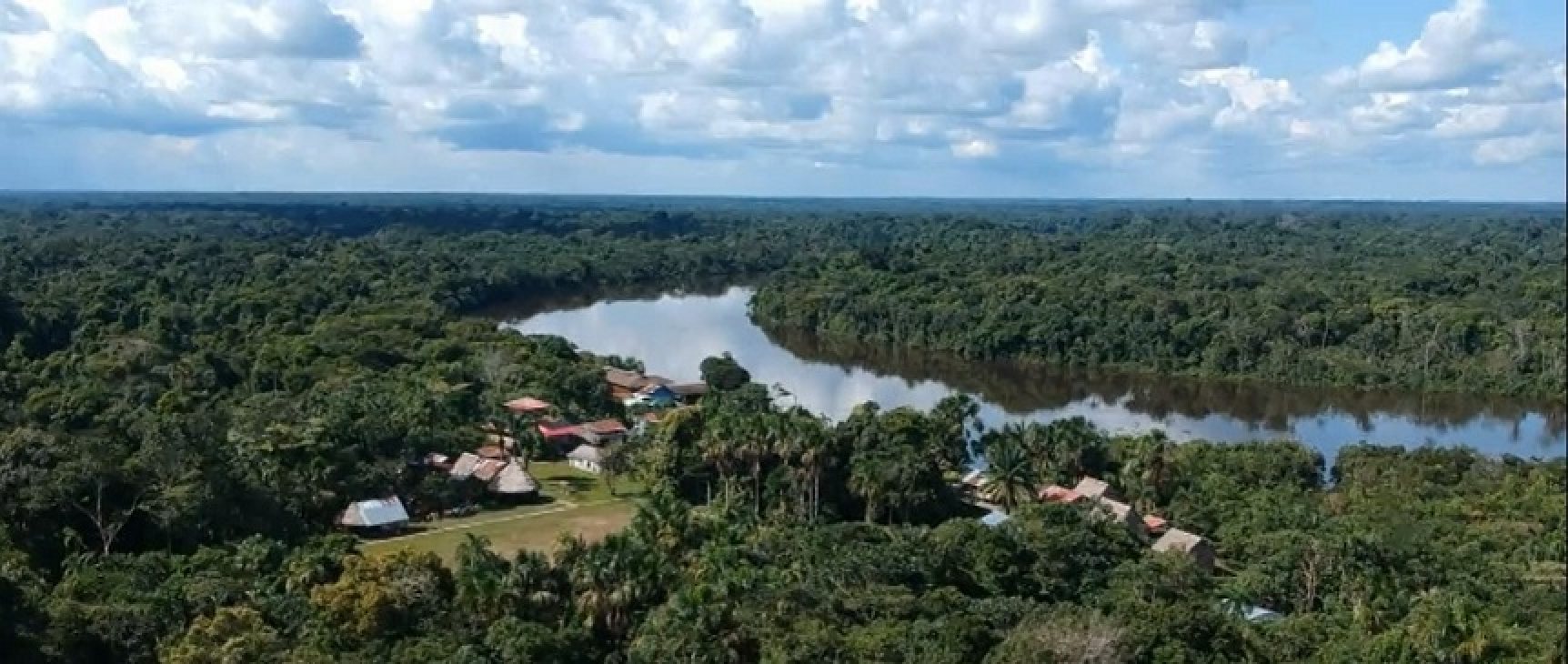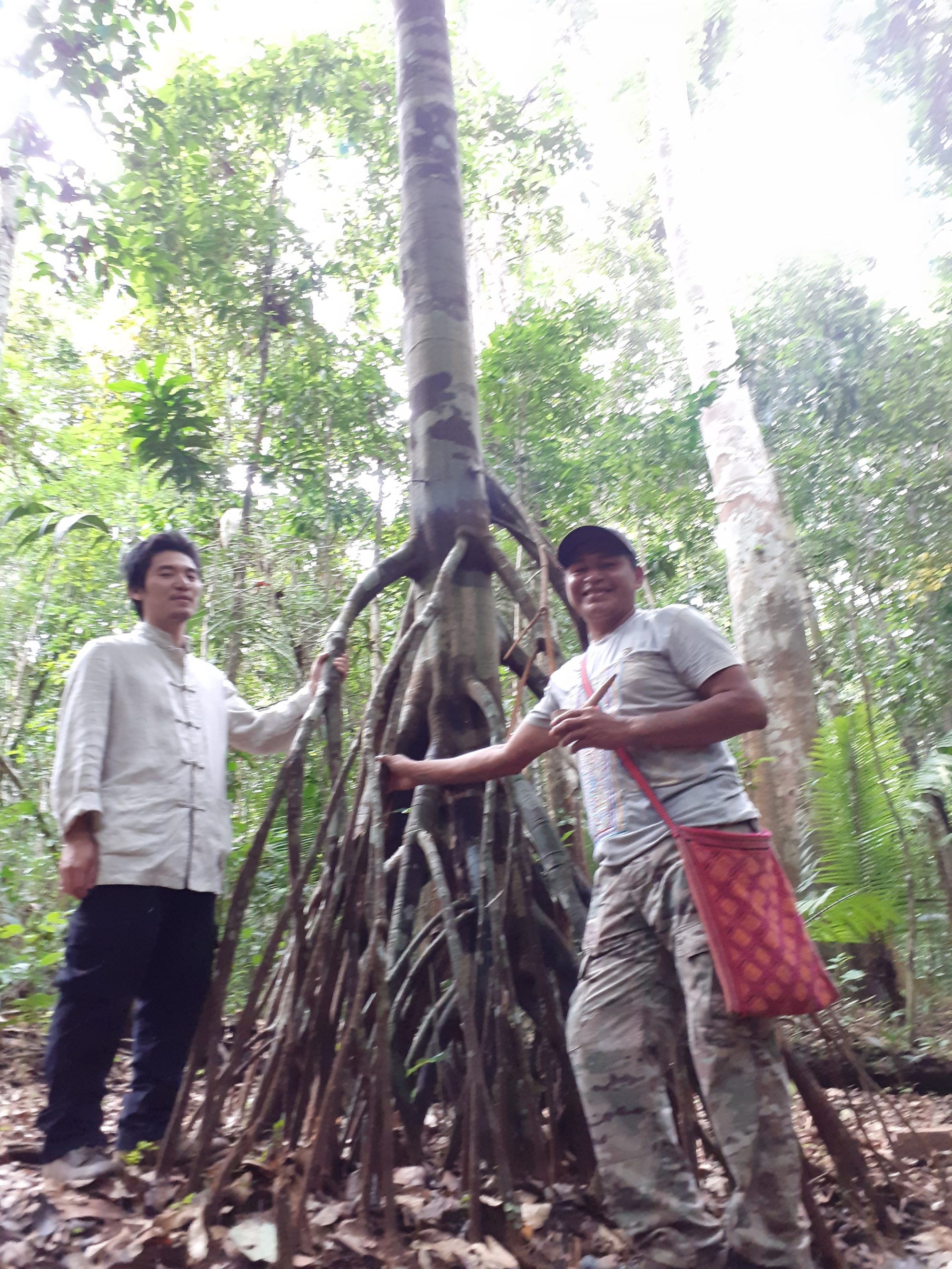
Can psychedelic plants treat mental health conditions? New study on ayahuasca assesses its impact on war veterans with PTSD
- A study at a specialist retreat frequented by stars like Zac Efron sees veterans consume ayahuasca-based brews and take part in shamanic rituals
- Researchers aim to determine if indigenous treatments could be viable options in modern medicine. But there are still stigmas attached to these practices
A new study in the heart of the Peruvian jungle is investigating the impact of ayahuasca retreats on military veterans, assessing the effect of the psychedelic plant medicine on brainwaves, the genome, gut microbiome and mental health.
At a specialist retreat frequented by Hollywood stars such as Zac Efron, the 50 veterans undergo ancient rituals in ceremonies where they drink a thick brown brew made from the ayahuasca vine and chacruna bush.
Hong Kong psychologist and musician Wai-fung Tsang, psychiatrist Dr Simon Ruffell and psychopharmacologist Nige Netzband are leading the research.

The study is a collaboration between the University of Melbourne, in Australia; the United States-based Heroic Hearts non-profit group, which supports military veterans; and the groups Onaya Science and the Ayahuasca Foundation, which do non-profit scientific research on Amazonian plant medicines.

He adds that his team is honoured to play a role in the collaboration, contributing to a better understanding of how indigenous knowledge may alleviate the grave impact that war has had on veterans’ lives.
Working closely with indigenous communities, Onaya Science, which Tsang co-founded, is carrying out a number of studies to better understand Amazonian plant medicines and traditional healing ceremonies, and how they can translate to modern medicine and therapies.

“It is increasingly important to better understand the impact of ayahuasca retreats as psychedelics continue to enter the mainstream,” says Ruffell, co-founder of Onaya Science and honorary senior research fellow at the University of Melbourne, in Australia.
“It is vital we work alongside traditional communities who use these medicines to better understand how to safely work with them and proceed in collaboration with respect and authenticity.”
The pilot stage of the current research project with 10 veterans will study the psychological and physiological impact of a traditional ayahuasca retreat conducted by traditional shamans.
I see interest in the Amazonian ayahuasca traditions as validation of ancestral wisdom
Onaya Science hopes to show how the environment can cause changes that affect the way genes function.
Together with short- and long-term psychiatric questionnaires, the research will collect data from electroencephalogram (EEG) recordings – which measure electrical activity in the brain using electrodes attached to the scalp – before, after and during ceremonies.

“We will be measuring different areas such as PTSD and levels of impulsivity, anxiety, depression, and things like substance misuse and addiction that are often seen [in war veterans], as well as sleep patterns and personality changes,” says Tsang.
The 10-day retreat, with veterans ranging in age from their 20s to 70s, will include five ayahuasca ceremonies as well as traditional Amazonian plant treatments.
Ayahuasca Foundation founder Carlos Tanner says his group has offered healing programmes for over a decade and witnessed countless examples of people benefiting from attending ayahuasca retreats.
Magic mushrooms helping with PTSD and depression at psychedelic retreats
Thanks to the Onaya Science research and similar studies, the scientific data is showing these benefits, Tanner says.
“I see this fascination and interest in ancestral psychedelic therapies like the Amazonian ayahuasca traditions as a validation of ancestral wisdom, and proof that the modern medical paradigm can be improved by the integration of indigenous perspectives on healing.”
Attitudes towards psychedelic therapies are gradually changing as more research in the field is carried out. But Ruffell says there is still a stigma because psychedelics are often misrepresented as a “silver bullet”.

“Some people think the experience will fix all their problems. But if it doesn’t then people are either disappointed or worse, it can exacerbate their depression,” Ruffell says.
“And then there is further stigma when you start talking about shamans in the Amazon rainforest. A lot of it is lost in translation.”
How psychedelics like magic mushrooms could treat depression and addiction

